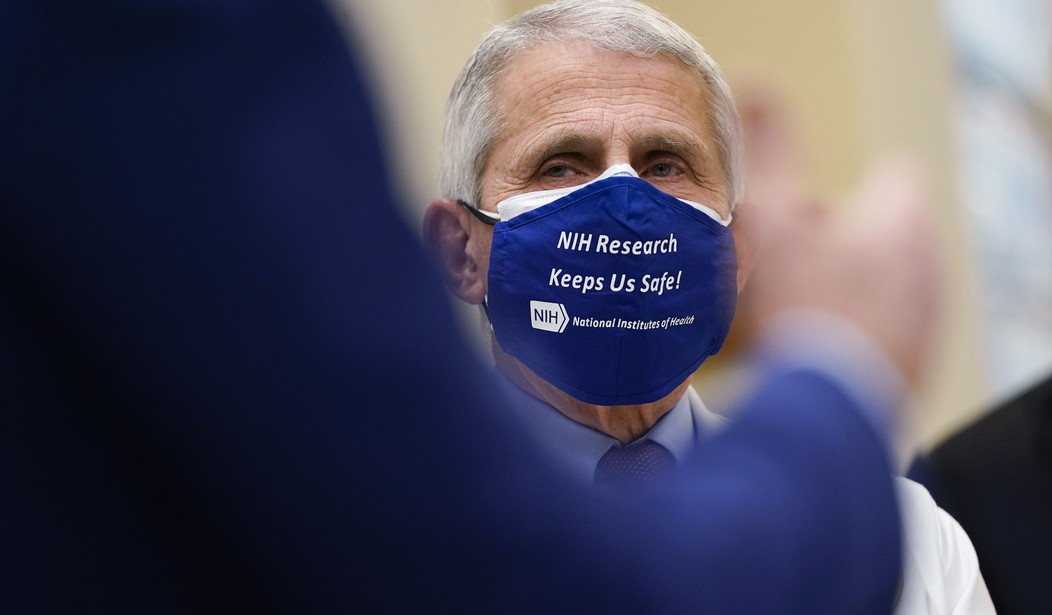As federal officials considered how the government should respond to an emerging pandemic in 2020, Francis Collins recalled last year, "We weren't really considering the consequences" of extreme measures such as business shutdowns, school closures, and stay-at-home orders. It was a startling admission from Collins, who played a major role in those conversations as director of the National Institutes of Health.
Collins, whose July 2023 comments recently attracted online attention, confessed that "public health people" made a "really unfortunate" mistake by ignoring the devastating side effects of the interventions they believed were necessary to curtail COVID-19 transmission. That mistake carries important lessons for future responses to communicable diseases and a wide range of public policies that inflict harm in the name of saving lives.
Collins, who ran the NIH from 2009 to 2021, was speaking at a Gettysburg, Pennsylvania, conference sponsored by Braver Angels. This organization aims to "bridge the political divide" by encouraging civil discussion between people with different ideologies and partisan allegiances. During a session with Wilk Wilkinson, a Minnesota trucking manager and podcast host who is sharply critical of the political reaction to COVID-19, Collins tried to explain the perspective of the scientists who shaped that response.
"If you're a public health person," he said, "you have this very narrow view of the right decision, and that is something that will save a life. [It] doesn't matter what else happens."
That seemingly noble impulse, Collins noted, encouraged public health specialists to overlook the unintended but foreseeable costs of the policies they recommended. "You attach infinite value to stopping the disease and saving a life," he said. "You attach a zero value to whether this actually totally disrupts people's lives, ruins the economy, and has many kids kept out of school in a way that they never might quite recover from."
Recommended
The folly of attaching "infinite value" to a life saved by government regulation should be obvious. Economists and regulators, after all, routinely and rightly seek to balance the costs of new rules against their expected benefits. This calculation entails estimating the "value of a statistical life."
If that value were infinite, it would justify any policy that promises to save lives, regardless of the cost. A universal speed limit of 25 miles per hour (or, more ambitiously, a ban on automobiles) would reduce traffic deaths, for example, but at a cost that few of us would consider acceptable.
During the pandemic, the wisdom of weighing costs against benefits was not just forgotten but explicitly repudiated. Andrew Cuomo, then New York's governor, insisted that the goal was to "save lives, period, whatever it costs," because "we're not going to accept a premise that human life is disposable."
Although Collins portrays that attitude as characteristic of "public health people," there were dissenters even among experts who fell into that category. In October 2020, for example, three epidemiologists -- Harvard's Martin Kulldorff, Oxford's Sunetra Gupta and Stanford's Jay Bhattacharya -- issued the Great Barrington Declaration, which recommended taking steps to protect people who were especially vulnerable to COVID-19 while allowing "those who are at minimal risk of death to live their lives normally."
At the Braver Angels conference, Collins described Kulldorff et al. as "very distinguished." He was less respectful in an October 2020 email to White House COVID-19 adviser Anthony Fauci, saying "this proposal from the three fringe epidemiologists" demanded "a quick and devastating published take down of its premises."
During his exchange with Wilkinson, Collins explained that he was "deeply troubled" by the Great Barrington Declaration, which he viewed as reckless. "I regret that I used some terminology that I probably shouldn't," he said.
Collins also regrets that he and his colleagues paid insufficient attention to the "collateral damage" caused by restrictions on social, economic and educational activity. "We probably needed to have that conversation more effectively," he said. Better late than never.
Jacob Sullum is a senior editor at Reason magazine. Follow him on Twitter: @JacobSullum. To find out more about Jacob Sullum and read features by other Creators Syndicate writers and cartoonists, visit the Creators Syndicate webpage at www.creators.com.

























Join the conversation as a VIP Member